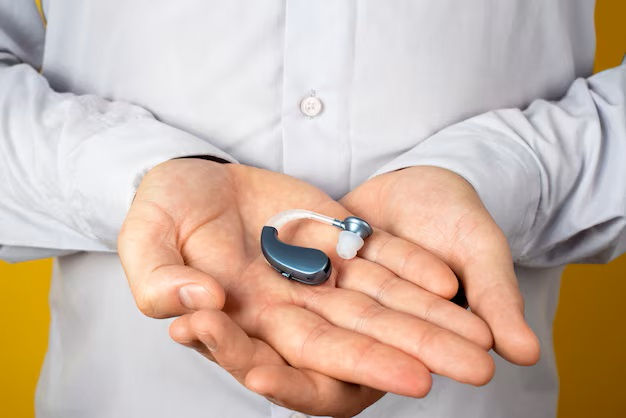Why Is Hearing Aid Protection Essential for Long-Term Hearing Health?
- totalhearingcenter
- Sep 3, 2024
- 3 min read
About
In our noisy world, safeguarding our hearing health is more critical than ever. From occupational hazards to everyday environmental noise, the risks to our hearing are widespread. Hearing protection services and hearing aid protection play vital roles in preventing hearing loss and maintaining quality of life.

Understanding Hearing Protection Services
Hearing protection services encompass a range of measures designed to prevent hearing loss due to exposure to loud noises. These services are crucial for individuals working in environments where noise levels are consistently high, such as construction sites, factories, and entertainment venues. The primary goal of hearing protection services is to reduce noise exposure to safe levels, thereby minimizing the risk of noise-induced hearing loss (NIHL).
Key Components of Hearing Protection Services:
1. Noise Assessment and Monitoring: One of the first steps in hearing protection is to conduct a thorough noise assessment. This process involves measuring the noise levels in various environments and identifying areas where noise control is necessary. Regular monitoring ensures that any changes in noise levels are detected and addressed promptly.
2. Custom Ear Protection: Not all hearing protection devices are created equal. Custom earplugs and earmuffs provide a higher level of protection compared to standard off-the-shelf options. These custom solutions are designed to fit the unique shape of an individual’s ears, offering a more comfortable and effective barrier against harmful noise.
3. Education and Training: Providing education and training on the importance of hearing protection is a crucial aspect of these services. Workers need to understand the risks associated with excessive noise exposure and the correct use of protective equipment. Ongoing training helps reinforce the message and ensures compliance with safety protocols.
4. Regular Hearing Checks: Routine hearing assessments are a part of comprehensive hearing protection services. These checks help in early detection of hearing loss and provide an opportunity for intervention before the condition worsens. Early intervention can prevent permanent damage and maintain hearing health.
The Role of Hearing Aid Protection
For those who already use hearing aids, protecting these valuable devices is just as important as protecting one’s hearing. Hearing aids are an investment in one's quality of life, and proper care is essential to ensure their longevity and effectiveness.
Best Practices for Hearing Aid Protection:
1. Proper Storage: Hearing aids should be stored in a dry, safe place when not in use. A hearing aid dehumidifier can be beneficial in preventing moisture damage, which is a common issue that can affect the performance of these devices.
2. Regular Cleaning: Dirt, earwax, and moisture can accumulate on hearing aids, leading to malfunctions. Regular cleaning using appropriate tools and techniques is essential to keep them functioning optimally. It's recommended to have hearing aids professionally cleaned periodically by a hearing healthcare provider.
3. Protective Accessories: There are various accessories designed to protect hearing aids from external damage. Protective cases, wind covers, and moisture-resistant covers can provide an additional layer of defense, especially for those who lead an active lifestyle or are frequently outdoors.
4. Maintenance Checks: Regular maintenance checks by a professional are crucial to ensure that the hearing aids are in good working condition. These checks can identify any issues early on and prevent costly repairs or replacements.
Conclusion
Both hearing protection services and hearing aid protection are essential in the fight against hearing loss. Whether it’s through noise assessments, custom ear protection, education, or the maintenance of hearing aids, taking proactive steps to protect hearing is crucial. By implementing these strategies, individuals can preserve their hearing health, enhance their quality of life, and continue to enjoy the sounds of the world around them.



Comments